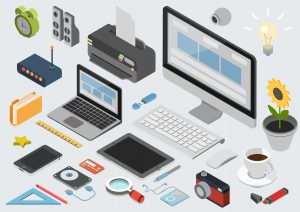STOCKHOLM/BRUSSELS – Independent browser companies in the European Union are seeing a spike in users in the first month after EU legislation forced Alphabet’s Google, Microsoft and Apple to make it easier for users to switch to rivals, according to data provided to Reuters by six companies.
The early results come after the EU’s sweeping Digital Markets Act, which aims to remove unfair competition, took effect on March 7, forcing big tech companies to offer mobile users the ability to select from a list of available web browsers from a “choice screen.”
Browsers are software that help users connect to the internet and are traditionally offered by big technology companies like Apple and Google for free in exchange for tracking which websites consumers visit and selling advertisement to them.
In mobile devices that run Android, Chrome browser comes as default and iPhones with Safari, making them the dominant browsers in the market.
Cyprus-based Aloha Browser said users in the EU jumped 250% in March – one of the first companies to give monthly growth numbers since the new regulations came in.
Founded in 2016, Aloha, which markets itself as a privacy focused alternative to browsers owned by big tech, has 10 million monthly average users and earns money through paid subscriptions, rather than selling ads by tracking users.
“Before, EU was our number four market, right now it’s number two,” Aloha CEO Andrew Frost Moroz said in an interview.
Norway’s Vivaldi, Germany’s Ecosia and U.S.-based Brave have also seen user numbers rise following the new regulation.
U.S.-based DuckDuckGo, which has about 100 million users, and its bigger rival, Norway-based Opera OPRA.O are also seeing growth in users, but said the choice screen rollout is still not complete.
“We are experiencing record user numbers in the EU right now,” said Jan Standal, vice president at Opera, which counts over 324 million global users.
CHOSEN ONES
Under the new EU rules, mobile software makers are required to show a choice screen where users can select a browser, search engine and virtual assistant as they set up their phones.
Previously, tech companies such as Apple and Google loaded phones with default settings that included their preferred services, such as the voice assistant Siri for iPhones. Changing these settings required a more complicated process.
Apple is now showing up to 11 browsers in addition to Safari in the choice screens curated for each of the 27 countries in the EU, and will update those screens once every year for each country.
While DuckDuckGo and Opera are offered in Apple’s list in all 27 countries, Aloha is in 26 countries, Ecosia is in 13 and Vivaldi in 8.
Google is currently showing browser choices on devices made by the company and said new devices made by other companies running Android operating system will also display choice screen in the coming months.
A Google spokesperson said they do not have data on choice screens to share yet.
As iPhones have a bigger market share than Google-branded phones, the growth for smaller browsers is currently coming at the cost of Safari.
Opera said most of the positive trends are from people making Opera the default browser on their iPhones.
But browser companies criticized how Apple and Google rolled out the new features which they described as slow and clunky, and they believe are slowing the migration of mobile users to new browser choices.
Mozilla, which owns Firefox browser, estimates that only 19% of iPhone users in the region received an update in a roll-out that appeared much slower than previous software updates, the company said.
In iPhones, users can see the choice screen only when they click Safari, and then users are shown a list of browsers with no additional information, said Jon Stephenson von Tetzchner, CEO of Norway’s Vivaldi.
“The process is just so convoluted that it’s easiest for (users) to select Safari or potentially some other known name,” he said.
The complicated design has led European Commission to start a non-compliance investigation into whether Apple may be preventing users from truly exercising their choice of services. – Reuters

